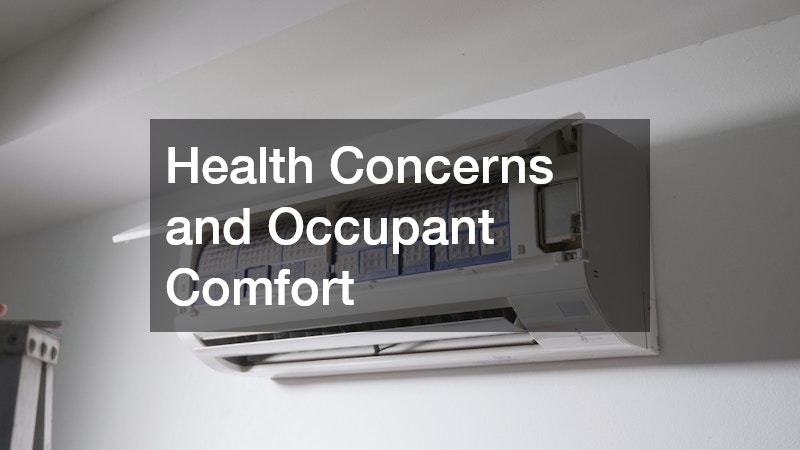In this article, we’ll explore the financial and functional impacts of delaying maintenance or repair services for your HVAC system. Understand the potential risks and learn how proactive measures can save you money and discomfort. By being proactive, homeowners can prevent unnecessary burdens while ensuring comfort and safety all year long.
The Importance of Regular HVAC Maintenance
Preventive Measures and Benefits
Regular HVAC maintenance is pivotal in preventing unexpected breakdowns and ensuring your system runs efficiently. Preventive measures like scheduled inspections and cleaning can significantly extend the lifespan of your HVAC system, saving you from premature replacements.
Studies show that well-maintained systems can reduce energy costs by up to 40%.
Routine check-ups provide the opportunity to address minor issues before they turn into larger, more expensive problems. This proactive approach not only helps maintain optimal performance but also ensures the system operates safely. It is important to remember that HVAC systems, much like vehicles, require consistent care to function at their best.
The benefits of regular maintenance extend beyond mere functionality, contributing to improved indoor air quality and enhanced occupant comfort. By ensuring each component works as intended, maintenance can help reduce allergens and dust circulation. Ultimately, investing in regular service proves to be cost-effective by minimizing the likelihood of sudden, costly repairs.
Consequences of Delayed Maintenance
Delaying HVAC maintenance can lead to decreased efficiency, eventually reflected in higher energy bills and uncomfortable interior environments. A neglected system often struggles to maintain the desired temperature, putting unnecessary strain on critical components. This strain can lead to mechanical failures that could have been easily prevented with timely maintenance.
As efficiency declines, the system may consume more energy to achieve the same output, leading to significant increases in utility costs. According to industry experts, HVAC systems typically lose about 5% of their efficiency each year they go without maintenance. Over time, this efficiency loss not only affects financial budgets but also presents an environmental concern.
System failures from deferred maintenance can also present safety risks, including potential leaks or electrical malfunctions. These hazards underscore the need for regular professional evaluations to identify and rectify unsafe conditions promptly. By maintaining a strict maintenance schedule, homeowners can avoid these risks while securing their peace of mind.
The Financial Implications of HVAC Neglect
Increased Repair Costs
Neglecting regular HVAC maintenance can result in minor issues escalating into significant, costly repairs. Simple problems, such as a clogged filter, if not addressed in a timely manner, can place undue stress on the system, leading to breakdowns. Repairing major components often requires a substantial investment that can strain household budgets unexpectedly.
When maintenance is deferred, minor inefficiencies grow, often leading to the failure of parts like the compressor or motor. Such replacements are not only expensive but might even necessitate temporary displacement until repairs are completed. Ensuring timely service can mitigate these risks and keep repair costs manageable over time.
Energy Efficiency and Utility Bills
A poorly maintained HVAC system tends to operate less efficiently, consuming more energy for the same level of performance. This increase in energy consumption directly translates to higher utility bills, effectively making the household budget tighter. Studies suggest that neglecting HVAC upkeep can result in energy inefficiencies of up to 25%.
The additional electricity use from an inefficient system is not only costly but environmentally irresponsible, leading to increased carbon footprints. A well-maintained system supports a sustainable lifestyle by reducing unnecessary energy consumption and waste. Effective operation through regular maintenance ensures both financial prudence and environmental consciousness.
How Delay Impacts Indoor Air Quality
Role of HVAC in Air Quality Management
HVAC systems play an essential role in managing indoor air quality by regulating temperature, humidity, and air purification. They work by circulating air throughout the home, filtering out dust, allergens, and other pollutants. A malfunctioning system can fail to effectively circulate and filter air, leading to a decline in air quality.
When HVAC systems are neglected, filters may become clogged, allowing contaminants to bypass and enter living spaces. This compromises the air quality, posing risks to occupants’ health, particularly for those with allergies or respiratory conditions. Regular maintenance ensures filters and ducts remain clean, safeguarding against these health risks.
Health Concerns and Occupant Comfort
Compromised air quality from a poorly maintained HVAC system can lead to numerous health concerns for inhabitants. Allergens and pollutants airborne due to uncleaned filters can aggravate conditions such as asthma and allergies. These health risks emphasize the need to ensure systems are routinely monitored and serviced.
Poor air quality adversely affects occupant comfort, leading to potential discomfort and reduced productivity within living and working spaces. Beyond health impacts, regular exposure to suboptimal air quality can cause fatigue and headaches, impairing one’s daily activities. Maintaining the HVAC properly ensures consistent comfort and well-being for all occupants.
Delaying professional services from an HVAC company can lead to financial strain, efficiency losses, and diminished indoor air quality. Timely maintenance and repairs offer significant benefits, including improved system performance, lowered utility bills, and better air quality. By prioritizing regular care of your HVAC system, you can ensure long-term savings and sustained comfort for your household.
